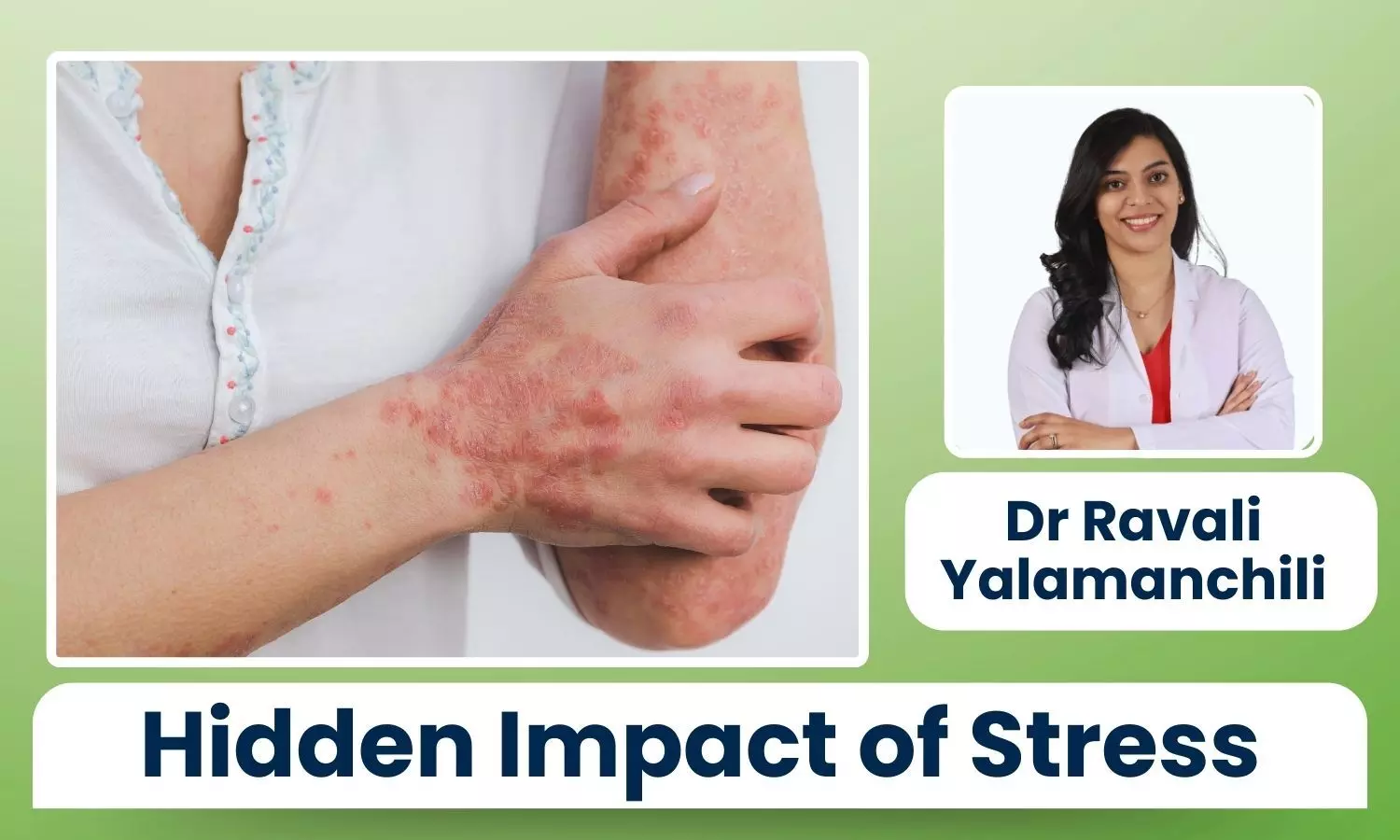Hidden Impact of Stress on Skin Conditions Like Psoriasis and Vitiligo - Dr Ravali Yalamanchili

When people come to my clinic with psoriasis flare-ups or new patches of vitiligo, they usually ask about diet, climate, or the creams they are applying. What often catches them off guard is when I shift the conversation to their stress levels.
Skin health is closely linked with emotional health, and stress is a common reason why some conditions keep coming back despite treatment.
How stress changes the skin
The skin is a living organ, connected to the brain and immune system. Whenever stress builds up, the body releases chemicals such as cortisol and adrenaline. These hormones are helpful in short bursts, but when they remain high for long periods, they disturb normal immunity and increase inflammation.
For those living with psoriasis, stress can cause red, itchy patches to spread or become more resistant to treatment. In vitiligo, it may hasten the loss of pigment cells, leading to fresh spots or an increase in existing ones.
Why do symptoms feel worse under stress?
Stress does not stop at fuelling the disease; it also slows healing. Patients who sleep poorly or remain anxious often find that their prescribed creams, tablets, or light therapy take much longer to work. In addition, stress encourages habits like scratching or skipping medication routines, both of which worsen the skin further.
I often explain that the skin and mind are in constant communication. Just as stress can flare up the disease, creating calmer daily routines helps treatment show better results.
Common triggers patients miss
City life brings with it endless strain, traffic jams, long workdays, deadlines, financial concerns, and family duties. Added to this is the constant exposure to mobile screens and digital stress.
Many patients later realise that their flare-ups often appear around exam time, big projects at work, or personal conflicts. Even joyful but stressful occasions, such as weddings or moving homes, can bring on a sudden episode. Recognising these patterns is the first step toward gaining control.
Practical ways to ease the cycle
Medicines remain the backbone of treatment, but stress management improves results.
Simple measures can make a noticeable difference:
Sleep routine: Going to bed and waking up at fixed times helps the body reset and reduces stress hormones.
Exercise: Activities like walking, swimming, or yoga reduce tension and improve overall well-being.
Relaxation Techniques, such as breathing exercises, meditation, or quiet time each day, often help reduce flare-ups.
Support: Talking openly with friends, family, or support groups reduces the emotional weight of the condition.
Balanced routine: Making space for hobbies and enjoyable breaks acts as a cushion against stress.
When counselling becomes important
Some patients blame themselves for feeling stressed or think they should handle it alone. I remind them that stress is part of being human, and seeking help is a step toward healing. Counselling, behavioural therapy, or guided relaxation can calm the mind and, in many cases, also improve skin health.
Dermatology is not only about medicines or procedures. It also means caring for the person as a whole, looking after emotional well-being along with the physical symptoms.
Living with psoriasis or vitiligo can be difficult, but it is important to remember these conditions are not your identity. Stress does not cause them single-handedly, yet it can exacerbate their condition. By learning to manage stress and combining this with proper medical care, patients regain better control over their skin and, often, over their confidence too.
Your skin reflects more than the surface. It often shows what is happening within your body and your mind. Looking after both together offers the best chance for stability and long-lasting improvement.
Disclaimer: The views expressed in this article are of the author and not of Health Dialogues. The Editorial/Content team of Health Dialogues has not contributed to the writing/editing/packaging of this article.


